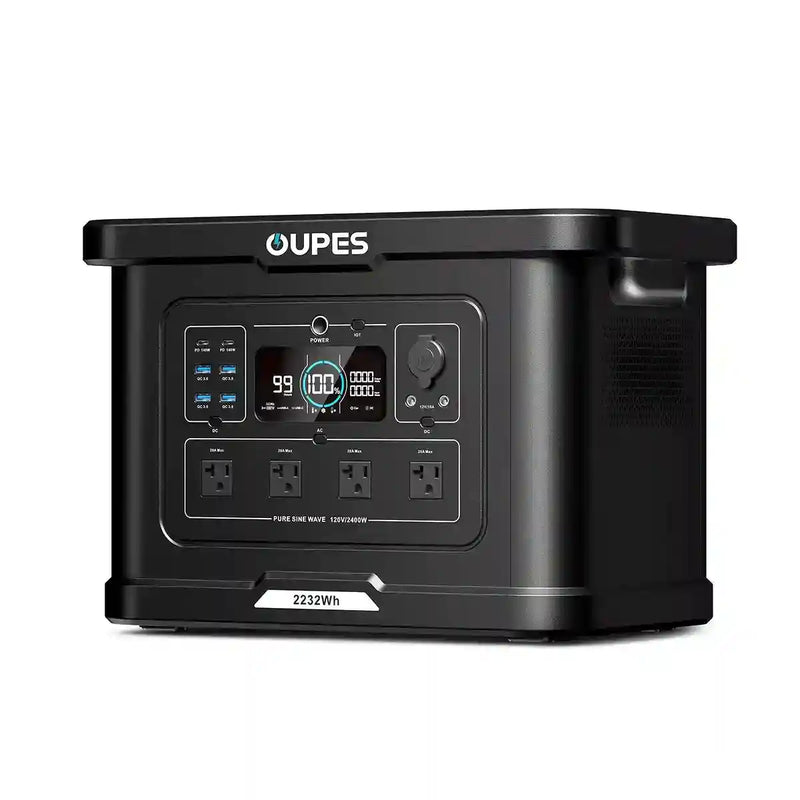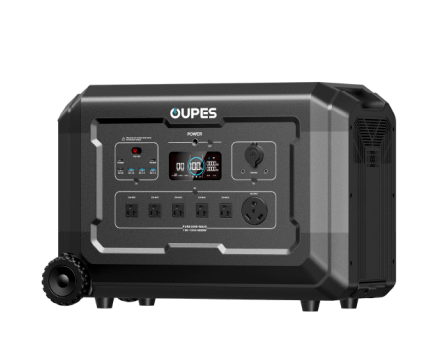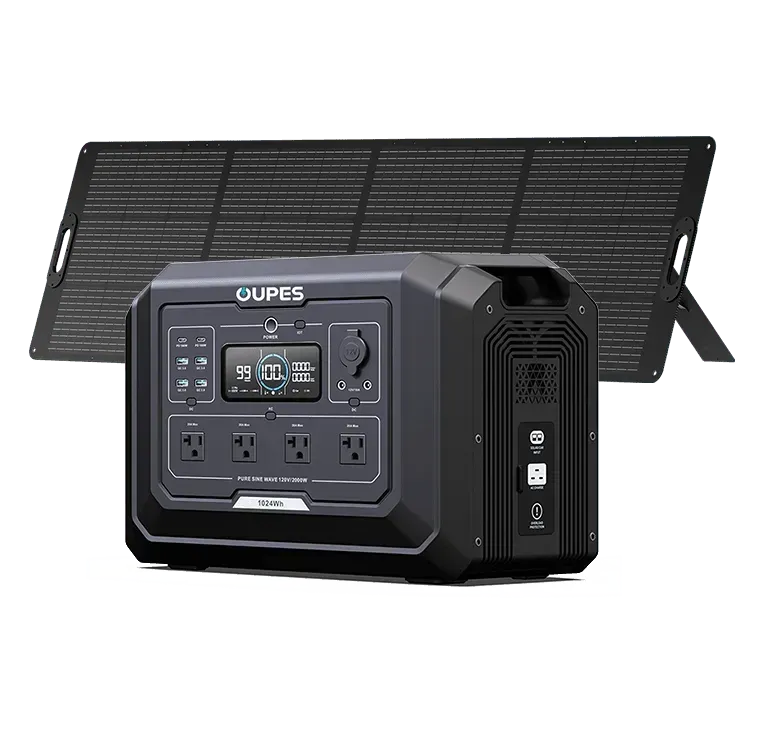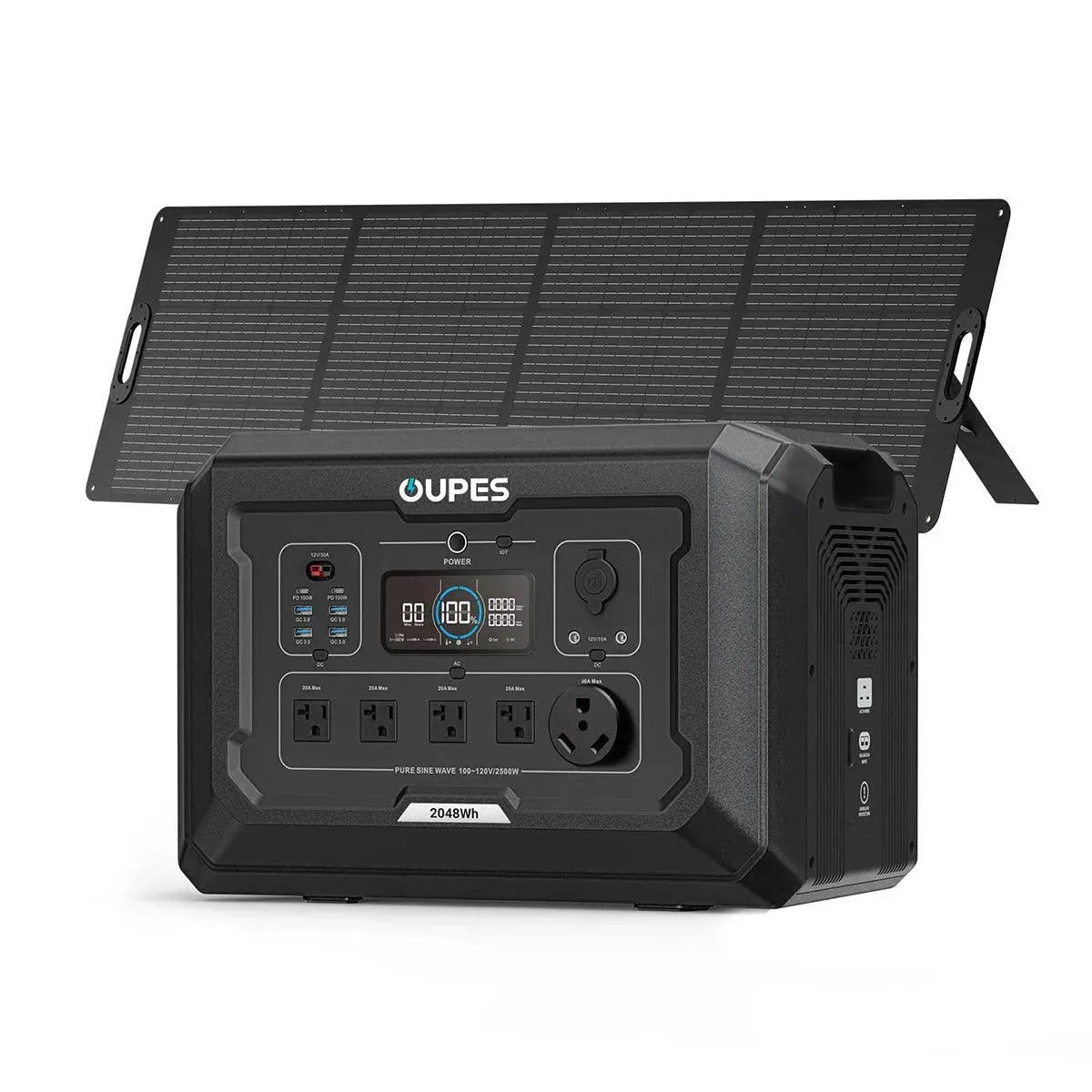
In today’s world, where renewable energy and portable power solutions are becoming increasingly popular, many people wonder about the difference between a portable solar generator and a simple battery. At first glance, they might appear similar—they both provide electricity on the go—but in reality, these two power solutions function differently and serve distinct purposes. Understanding how they differ can help you make informed decisions when it comes to energy storage, backup power, or powering your outdoor adventures.
This article dives deep into the characteristics, benefits, and limitations of portable solar generators compared to standalone batteries. We’ll cover how each works, where they’re most useful, and what factors to consider when choosing between them. Whether you’re preparing for emergencies, planning a camping trip, or looking for sustainable home backup power, this guide will help you clearly understand your options.
Understanding How Portable Solar Generators Work
A portable solar generator is not just a battery—it is an integrated system designed to capture, store, and deliver energy for multiple uses. At its core, a portable solar generator typically includes four main components: solar panels, a charge controller, a battery, and an inverter. Together, these parts allow it to collect renewable energy from the sun, store it efficiently, and convert it into usable electricity for your devices and appliances.
The process begins with solar panels, which absorb sunlight and convert it into direct current (DC) electricity. The charge controller regulates this flow of energy to ensure the battery charges safely and does not overheat or degrade. Once stored, the energy can be used as DC power or converted into alternating current (AC) through the inverter, allowing you to power household items such as refrigerators, laptops, or even medical equipment. This makes solar generators versatile and suitable for a wide range of applications.
One of the most important aspects of a solar generator is its ability to provide renewable energy independently of the electrical grid. Unlike simple batteries, which require recharging from an external source like a wall outlet, a solar generator can keep recharging itself as long as sunlight is available. This self-sufficiency makes them ideal for outdoor enthusiasts, off-grid living, or anyone preparing for extended power outages. With portable options, you can take your power source anywhere, whether camping in remote areas or using it at home during emergencies.
Brands like OUPES have advanced portable solar generator technology by offering systems with high-capacity batteries, fast-charging capabilities, and multiple output ports. These modern systems are compact yet powerful, capable of running small appliances or charging several devices at once. In essence, a portable solar generator functions as a complete, eco-friendly energy solution rather than just a storage unit.
How Traditional Batteries Function
A traditional battery, on the other hand, is a storage device that holds electrical energy for later use. It does not generate electricity on its own; instead, it must be recharged from an external source such as a wall outlet, a car charger, or another power supply. Batteries are everywhere in our daily lives, from powering smartphones and laptops to cars and flashlights. Their primary function is to store energy chemically and release it when connected to a circuit.
Unlike portable solar generators, standalone batteries usually lack built-in inverters or charge controllers. This means they can typically only output direct current (DC) power, which limits the range of devices they can directly power. To run household appliances, you’d need additional components to convert DC to alternating current (AC). This makes standalone batteries less versatile for larger or more complex energy needs, though they remain highly practical for smaller electronics.
Batteries come in different types, such as lithium-ion, lead-acid, or nickel-metal hydride. Each type has its own strengths and weaknesses. Lithium-ion batteries, for example, are lightweight, efficient, and long-lasting, which is why they’re often used in modern solar generators. Lead-acid batteries, while more affordable, are heavier and degrade more quickly over repeated charge cycles. Your choice of battery depends on cost, energy requirements, and intended use.
In essence, while batteries are excellent for simple power storage and short-term use, they lack the integrated features of a portable solar generator. They are dependent on an external charging source, which can be a major drawback during prolonged outages or in outdoor situations where grid power isn’t accessible. Still, batteries remain a reliable and accessible solution for anyone who needs portable electricity on a smaller scale.
Comparing Their Applications in Real Life
The key difference between a portable solar generator and a battery lies in how you can use them in practical situations. For instance, if you’re planning a weekend camping trip, bringing along a standalone battery pack may be sufficient for charging phones, powering a small fan, or running LED lights. These devices don’t require a lot of energy, and a compact battery is lightweight and easy to carry.
However, if your needs extend to running larger appliances such as mini-fridges, CPAP machines, or laptops for multiple days, a portable solar generator is far more practical. Its integrated inverter and multiple outlets allow it to handle a variety of devices at once, while the ability to recharge with solar panels ensures you don’t run out of power halfway through your trip. This is particularly valuable for those venturing far from grid access or preparing for extended emergencies at home.
For homeowners, solar generators can act as a backup power solution during blackouts. Unlike batteries, which may drain within a few hours, solar generators can be recharged daily through panels, providing renewable energy as long as the outage lasts. Families who need consistent access to refrigeration, lighting, or medical equipment often find solar generators invaluable. By comparison, a simple battery is better suited for shorter disruptions where grid power is expected to return quickly.
In professional or off-grid settings, the versatility of solar generators becomes even more important. Contractors working at remote sites, outdoor event organizers, or emergency response teams can all benefit from reliable, portable power that doesn’t depend on fuel or a nearby outlet. Meanwhile, batteries are better suited for personal, small-scale tasks where portability and simplicity are prioritized over extended functionality.
Cost, Sustainability, and Long-Term Value
Cost is often a deciding factor when choosing between a portable solar generator and a battery. On the surface, batteries are usually cheaper because they are simpler devices with fewer integrated components. If your goal is to have a quick, affordable solution for small electronics, a battery pack may be all you need. However, when considering long-term value and versatility, portable solar generators often justify their higher price tag.
Solar generators provide sustainable energy, reducing your reliance on fossil fuels or the grid. They align with eco-friendly lifestyles and are especially appealing to those who want to reduce their carbon footprint. Over time, the ability to recharge freely from sunlight offsets the initial cost, making them a wise investment. For households that frequently experience power outages, the long-term savings from not losing refrigerated food or not relying on expensive fuel-based generators can be significant.
Durability and lifespan are also important considerations. High-quality solar generators, particularly those with lithium-ion batteries, can last for thousands of charge cycles, providing reliable service for years. Standalone batteries may wear out faster depending on the type and frequency of use. Choosing a product from a trusted brand like OUPES ensures you’re getting a durable, efficient power solution with long-term value.
Ultimately, cost is not just about the purchase price but about the broader benefits. Solar generators provide convenience, versatility, and sustainability that batteries alone cannot match. If you’re looking for a solution that not only powers devices but also adapts to various scenarios, a portable solar generator is often the smarter long-term choice.
Conclusion
While both portable solar generators and batteries serve the purpose of providing power, the difference lies in functionality and scope. A battery is a simple storage unit that requires external charging, making it best suited for small-scale, short-term use. A portable solar generator, by contrast, is a complete power system that generates, stores, and delivers energy efficiently, making it ideal for larger, long-term, and off-grid applications.
For anyone who values flexibility, sustainability, and preparedness, solar generators offer a significant advantage. Whether you need to keep your household running during an outage, power appliances on a camping trip, or simply have peace of mind knowing you can recharge independently, solutions like those from OUPES provide a reliable answer. By understanding the differences, you can choose the power option that best fits your lifestyle and energy needs.




























